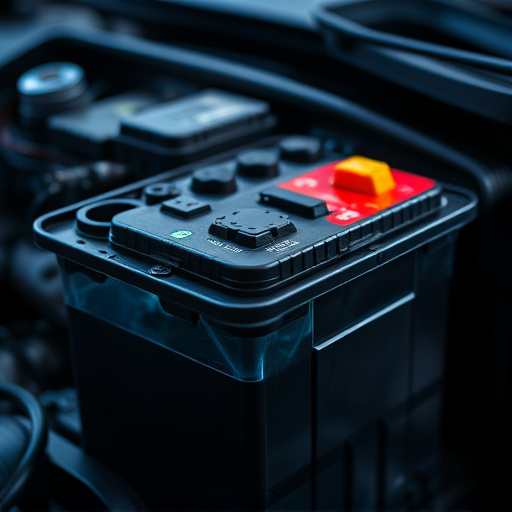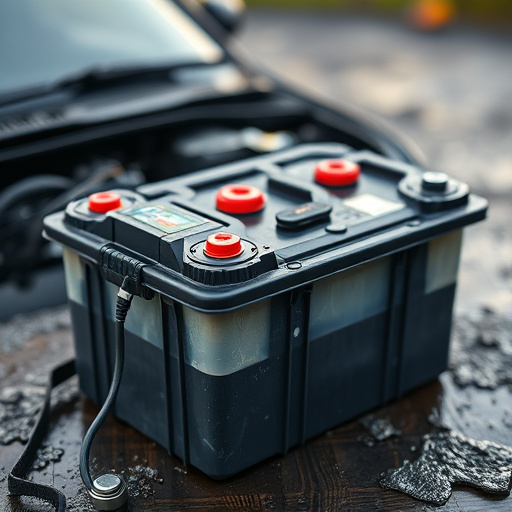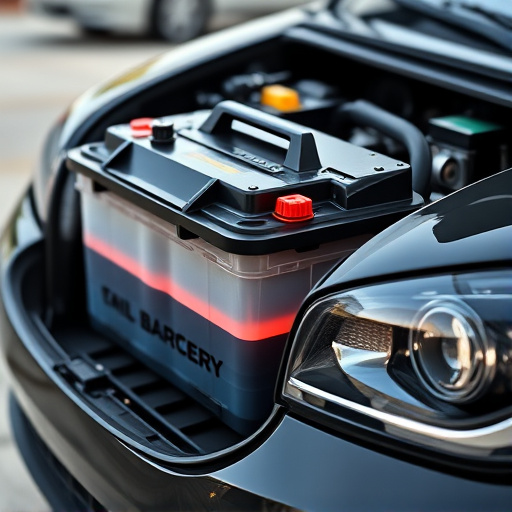When replacing car batteries, exploring eco-friendly alternatives like lithium-ion (Li-ion) or nickel-metal hydride (NiMH) batteries is crucial to minimize environmental impact. These green battery options offer superior energy density, longer lifespans, and easier recyclability compared to traditional lead-acid batteries, contributing to a sustainable future by reducing e-waste generation. Always dispose of old batteries responsibly through recycling programs to protect the planet during the replace car battery process.
Looking to replace your car battery but want an eco-friendly option? This guide explores sustainable alternatives to traditional lead-acid batteries, shedding light on their environmental benefits. We’ll delve into the impact of conventional batteries and introduce you to cutting-edge, green solutions. Additionally, we provide practical tips for responsible replacement and disposal, ensuring a more sustainable approach when it’s time to say goodbye to your old battery.
- Understanding Traditional Car Batteries and Their Impact
- Exploring Eco-Friendly Battery Alternatives
- Tips for Responsible Battery Replacement and Disposal
Understanding Traditional Car Batteries and Their Impact

Traditional car batteries, commonly known as lead-acid batteries, have been the standard for decades. They store energy through a chemical reaction, converting electrical energy into chemical energy and vice versa when needed. While they’ve served us well, these conventional batteries come with environmental drawbacks. The production process involves toxic materials, and disposal can lead to soil and water contamination due to the potential leaching of hazardous substances. Moreover, their limited lifespan means frequent replacements, contributing to electronic waste. When considering a replace car battery scenario, it’s essential to explore eco-friendly alternatives that minimize these environmental impacts.
Exploring Eco-Friendly Battery Alternatives

When considering a greener approach to replacing your car’s battery, it’s essential to explore eco-friendly alternatives that reduce environmental impact. Traditional lead-acid batteries contribute to electronic waste and have harmful production processes. Fortunately, several sustainable options are now available. One popular choice is lithium-ion (Li-ion) batteries, renowned for their high energy density and longer lifespan compared to conventional ones. These advanced batteries are commonly used in electric vehicles, offering an efficient and cleaner replacement.
Additionally, nickel-metal hydride (NiMH) batteries provide a viable green alternative, especially for those looking for a middle ground between performance and cost. They are more environmentally friendly than lead-acid batteries and can be recycled more easily. Exploring these eco-conscious options not only benefits the planet but also ensures your vehicle starts reliably, contributing to a greener future while keeping your car running smoothly.
Tips for Responsible Battery Replacement and Disposal

When it comes time to replace your car battery, consider eco-friendly options and responsible disposal practices. Look for batteries with a higher recycling rate or those made from more sustainable materials. Many modern vehicles now come with lithium-ion batteries, which are more energy-dense and have longer lifespans compared to traditional lead-acid batteries. Opting for these advanced batteries can reduce environmental impact.
For responsible disposal, research local recycling centers that accept car batteries. Never dispose of a battery in regular trash as they can leak toxic chemicals. Some auto parts stores offer battery recycling programs, making it convenient and ensuring proper disposal. Remember, taking the time to choose eco-friendly options and recycle old batteries makes a difference in reducing electronic waste and protecting our environment.
As we look towards a more sustainable future, choosing eco-friendly options for car battery replacement is no longer just an ideal but a necessity. By exploring alternatives like lithium-ion and advanced lead-acid batteries, we can reduce our environmental impact while ensuring reliable power for our vehicles. Remember that responsible disposal methods are key, so be sure to follow local guidelines when replacing your car battery. Making informed decisions at every step contributes to a greener world.
